Do you really know how horses sleep? It's not just a fun fact: knowing it helps improve their well-being. A...
Search in blog
Blog categories
Latest posts
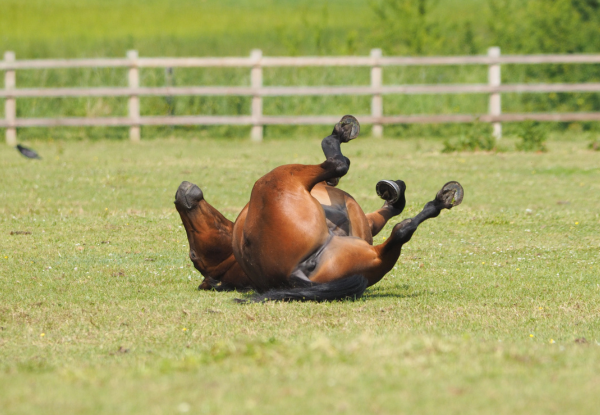
Understand the risks of colic in horses, learn how to spot the symptoms, and discover how to act quickly. A simple...

Hippotherapy is an innovative therapy that uses the power of the horse to promote physical, cognitive, and emotional...
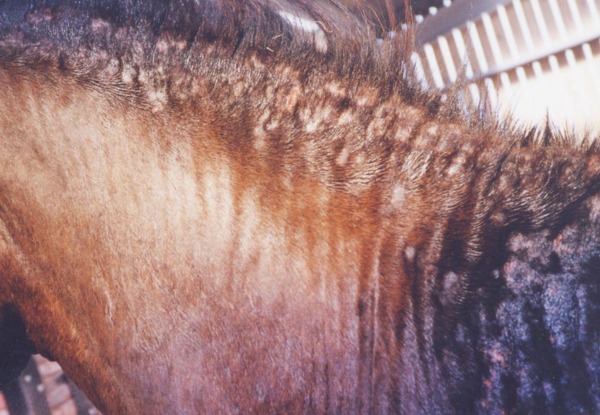
Everything you need to know about horse sweet itch: a complete guide with symptoms, causes, and helpful remedies to...
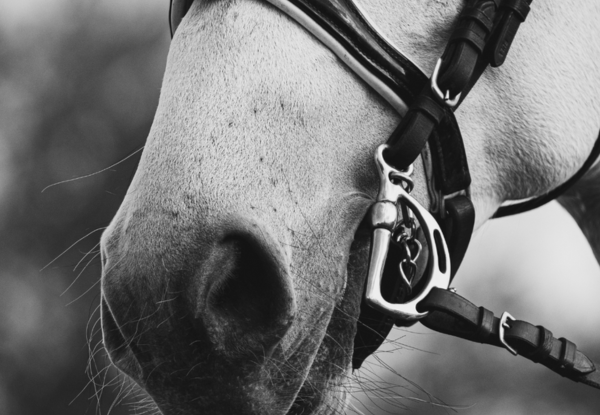
A technical guide to choosing the right bit: learn the difference between curb and snaffle and find the best option...
Popular posts
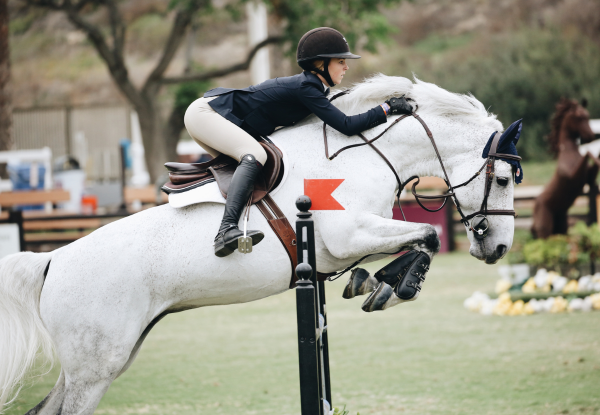



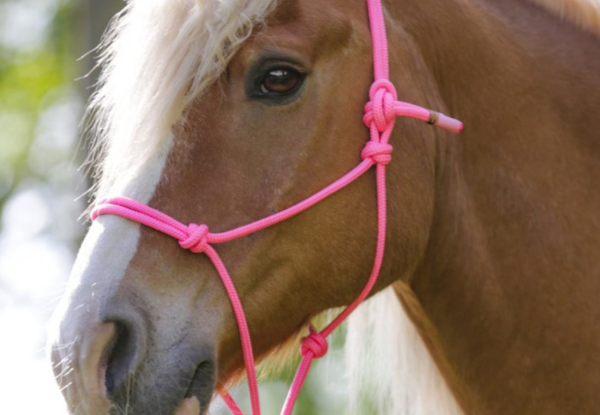
Featured posts


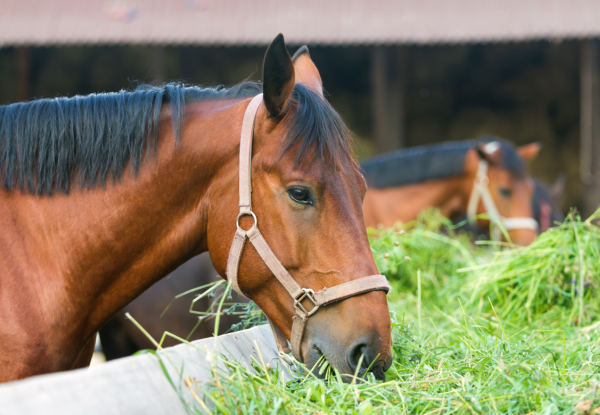
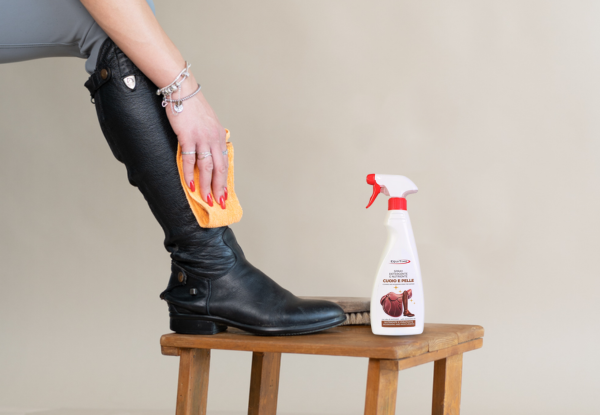

Colic in horses: How to recognize, prevent and act quickly
Equine colic is one of the most common and feared veterinary emergencies among horse owners.
Colic in horses can range from a simple stomachache to a serious condition that needs urgent surgery.
In this article, we will explain everything you need to know: from colic symptoms to the types of colic, from possible causes to tips for prevention, and when to call the veterinarian.
Quick action can literally save your horse’s life.
WHAT IS COLIC IN HORSES?
Colic is not a disease itself, but a general term that means abdominal pain.
This pain can have many causes, most of them affecting the gastrointestinal tract, especially the intestine.
Colic in horses can be caused by a simple spasm, constipation, or a twist of the intestine.
The severity can change depending on the cause and how fast you act.
In some cases, colic can be treated with a simple medicine, but in more serious cases, surgery may be needed.
WHAT ARE THE MAIN SYMPTOMS OF EQUINE COLIC?

Recognizing the symptoms of colic is essential for early treatment. A horse with colic may show:
-
Looking often at the flank
-
Frequent rolling and restlessness
-
Loss of appetite
-
Sweating and fast heartbeat
-
Changes in breathing rate
-
Pale gums
Watching your horse’s behavior closely can make a big difference.
WHAT ARE THE CAUSES OF COLIC IN HORSES?
Some of the most common causes of colic are:
-
Feeding mistakes: too much grain, not enough water, diet changes
-
Poor quality or not enough rough forage or hay
-
Sand build-up in the digestive tract
-
Sudden changes in diet or type of forage
-
Lack of exercise and long periods in the stall
-
Too much sugar in the feed
All these factors can trigger irritation or an obstruction in the intestines.
WHAT ARE THE DIFFERENT TYPES OF COLIC?
There are different types of colic that vary by severity and location. The most common include:
-
Gas colic: caused by too much gas in the intestine; usually treated with medicine.
-
Impaction colic: a blockage in the intestine caused by material build-up.
-
Torsion colic: the intestine twists on itself, causing distension.
-
Sand colic: caused by sand build-up in the intestine.
-
Parasite colic: caused by infestations that irritate the intestinal lining.
Each type of colic needs a different treatment and must be checked carefully by a veterinarian.
HOW IS COLIC DIAGNOSED?
To diagnose colic, the veterinarian will do a clinical check-up, which includes:
-
Rectal exam to check for distension or twisting.
-
Checking the gum color and vital signs (heart rate and breathing rate).
-
Observing the horse’s behavior and abdomen.
-
Possible abdominocentesis.
-
Other diagnostic tests like abdominal ultrasound in serious cases.
Finding the cause quickly is very important to start the right treatment.
WHEN SHOULD YOU CALL THE VETERINARIAN IMMEDIATELY?

Every case of colic should be taken seriously. It is important to call the veterinarian immediately if:
-
The horse shows persistent abdominal pain
-
It has abnormal gums and signs of dehydration.
-
It has a heart rate over 60 bpm and increased breathing rate.
-
It has not passed manure for more than 12 hours.
-
You suspect a twist or impaction colic
A quick intervention can save the horse’s life.
DOES A HORSE WITH COLIC NEED SURGERY?
Not all colics need surgery, but in some cases it is necessary.
The veterinarian will decide if surgery is needed when:
-
Colic does not improve with medicine
-
There is a suspected intestinal twist
-
The colic gets worse quickly
Surgical treatment often includes fluid therapy, correcting blockages or twists, and post-operative care.
The decision must be made quickly to avoid permanent damage.
HOW TO PREVENT COLIC IN HORSES?
Preventing colic is possible by following some good practices:
-
Give a balanced daily feed, without too much grain
-
Provide fresh and clean water at all times
-
Offer high-quality rough forage and well-stored hay
-
Avoid sudden changes in diet, introduce new food slowly
-
Reduce the sugar content and use balanced feed
-
Ensure proper exercise and daily access to the paddock
WHAT ARE SOME TIPS TO PREVENT COLIC?
Here are some practical tips:
-
Schedule regular check-ups with a trusted veterinarian
-
Watch the horse closely during season or diet changes
-
Limit continuous stall time and promote free movement
-
Pay attention to your horse’s health with daily observation
-
Never give medicine without your veterinarian’s advice
Following these precautions can greatly reduce the risk of colic and improve your horse’s quality of life.
WHAT IS THE PROGNOSIS FOR EQUINE COLIC?
The prognosis of colic depends on several factors:
-
Type of colic: gas colic has a better prognosis than a twist
-
Speed of treatment: acting fast can save the horse’s life
-
General condition of the horse and the digestive tract
-
Response to initial treatments or need for surgery
Always stay calm and follow the veterinarian’s advice, who will guide the treatment process.
SUMMARY: WHAT TO REMEMBER ABOUT COLIC IN HORSES
-
Colic in horses can range from mild to very serious.
-
Symptoms include abdominal pain, restlessness, and behavior changes.
-
Causes of colic include diet errors, lack of exercise, and sand in the gut.
-
There are different types of colic, each needing specific treatment.
-
Early diagnosis and support from a veterinarian are key.
-
Some colics need surgery, others only medical care.
-
Good feed and environment management can prevent colic.
-
Always follow prevention tips and check your horse’s health daily.
Remember: colic can be fatal, but with quick action and help from your trusted veterinarian, you can protect your horse’s life.
Visit the supplement products section on www.equitime.it.png)
Related posts
 Mud Fever: effective solutions for treating and preventing it permanently
Mud Fever: effective solutions for treating and preventing it permanently
 How to keep your horse hooves healthy: tips and useful advice for winter
How to keep your horse hooves healthy: tips and useful advice for winter
 Equitime Horse & Leather Care: the new line for horse and leather care
Equitime Horse & Leather Care: the new line for horse and leather care
 Horse Arnica: properties and benefits of extra-strong arnica gel for horses and human use
Horse Arnica: properties and benefits of extra-strong arnica gel for horses and human use
 What do horses eat? A complete guide to horse feeding for optimal health
What do horses eat? A complete guide to horse feeding for optimal health
.png)
.png)
